"The past is a big place filled with music. Some players cling to it like a security blanket; others fool themselves that they can invent new sounds out of thin air. The smart ones use the past as a resource: an infinite library from which to steal any number of hooks and probably make a clean getaway. But borrowing from the past is different from wallowing in it, and hip modernity springs from the subtlest tweak of something old. That's the game the Microscopic Septet plays. Although you might variously hear echoes of Duke Ellington, Sun Ra or Louis Jordan, the compositions by pianist Joel Forrester and soprano saxophonist Phillip Johnston suddenly dart up unforeseen alleys, like the past is chasing with sirens screaming. Even more than the compositional quirks, what ensures their escape is the players' characters oozing from the music – and it's a fun ooze. Now, 34 years on, the Microscopics have their own past to cannibalise; their own bones to spit out. The result? One of the most distinctive sounds in contemporary jazz." – John Shand / The Sydney Morning Herald
The Microscopic Septet's official website
Hear the Microscopic Septet do 3 live songs and a great inverview on WGBO!
Hear the Microscopic Septet on NPR's Fresh Air show
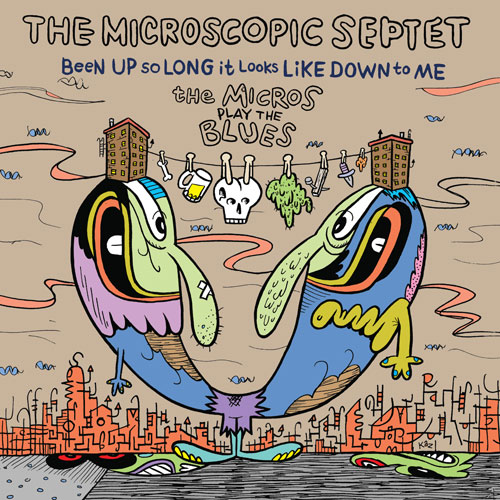 BEEN UP SO LONG IT LOOKS LIKE DOWN TO ME: THE MICROS PLAY THE BLUES RUNE 425 |
It takes an unusual band to make news out of the blues, and The Microscopic Septet deliver a gripping investigation of the form on Been Up So Long It Looks Like Down to Me: The Micros Play the Blues, which continues the band’s brilliant resurgence. |
 MANHATTAN MOONRISE RUNE 370 |
"... these fellas still sound inspired. Joyously performed by seasoned veterans, Manhattan Moonrise fits seamlessly into the Micros’ oeuvre, an effort as singularly engaging as the Septet’s earliest recordings." – Point Of Departure Originally active from 1980-1992, and reactivated in 2006 with the original personnel, The Microscopic Septet are regarded as one of the most important and unique bands to come out of the New York scene of the 1980s. They entertained audiences with their combination of swing, energy and humor, which Downbeat described as 'seminal, brilliant post-modern jazz.' The Micros start with a basic reeds-and-rhythm texture sonically similar to the sound of the Swing Era, but they use influences from the entire continuum of jazz. The result is a brilliant blend of fresh-sounding orchestration, ideas, compositions and inspired soloing. Their sound is the sound of jazz in America; ALL of it, from Ayler to Zorn, bebop to Basie. The Microscopic Septet distills the essence of jazz into a sound that swings a music that is intelligent, sometimes humorous, and always good fun. The Micros are widely known for their theme song to NPR's 'Fresh Air with Terry Gross' program, broadcast daily across the USA and heard by millions! Voted the #5 jazz group in the 59th annual DownBeat critic's poll, 'Manhattan Moonrise' is their 3rd release since reforming and their 7th release overall. |
 FRIDAY THE 13TH RUNE 310 |
The Microscopic Septet were voted the #5 jazz group in the 59th annual Downbeat Poll in August, 2011! “Although the reunited eighties downtown mainstay the Microscopic Septet features two exceptionally individualistic composers (and superb improvisors) in the pianist Joel Forrester and the soprano saxophonist Phillip Johnston, its latest album “Friday The 13th,” is devoted to the music of Thelonious Monk; it is a glorious fit.” – The New Yorker, December 6, 2010 "It is splendid fun." – JazzTimes "Always in balance between affection and irony, they have been able to pay homage to the tradition without losing their ability to renew it, even in a dramatic way. This successful CD is one of the best tributes ever paid to Monk." – Musica Jazz (Italy) "Just about the time you ask yourself, “What else can be done with a Monk tune?” The Microscopic Septet comes in to blow you away. Fueled by inventive arrangements by soprano saxophonist Phillip Johnston and pianist Joel Forrester (with one by Bob Montalto), the Micros twist and turn through the Thelonious Monk songbook with a spirit of ambitious grace, super-sized energy and flat-out fun...Septet co-leaders Johnston and Forrester have been loving and playing Monk together since the 1970s, and their joy infuses every second of this disc." – Downbeat editor's pick "...the Microscopic Septet...is ideally suited to reinterpret Monk. The arrangements pay homage to the spirit of the compositions while stretching them in all kinds of fresh directions, breathing life into even the most familar tunes. The counterpoint is sharp and crackling, the solos are tight and economical, and the ensemble is adept at following all the melodies' twists and turns. It's really quite the musical package. If youy like Monk's music, jazz in general, or creative music of any sort, this CD should be in your collection." – Signal to Noise Composer and pianist Thelonious Sphere Monk (1917-82) is one of the top creative deities in the pantheon of American Jazz Greats. His tunes, once considered radical and appreciated by the cognoscenti, are now beloved standards. The music of Monk was also the catalyst that sparked the creation of one of New York’s most legendary and important jazz groups, the Microscopic Septet. Since its founding in 1980, under the co-leadership and co-compositional duties of soprano saxophonist Phillip Johnston and pianist Joel Forrester, "the Micros" have been "New York's most famous unknown band"; since 1990, the catchy, film noir theme they created for NPR’s “Fresh Air with Terry Gross” has aired daily on stations across America, and may now be the most-broadcast jazz tune in the world. In 1974, the Monk tune: "Well You Needn’t" first brought the future Micros co-leaders together by chance. Johnston was living in the Bowery at the time, and Forrester, hearing music, barged into his apartment, unannounced: "I was playing a Thelonious Monk tune, and a guy I had never seen before came walking through my door, which wasn’t locked - those were the hippie days..." The encounter sparked a friendship and working relationship, in which Monk’s music reverberated on multiple levels across the years. Another chance encounter – at chicken and ribs place West Boondock, forged Forrester’s friendship with the Baroness Pannonica de Koenigswarter. And through the Baroness, Forrester would ultimately meet and periodically play piano for Monk. Since Johnston and Forrester’s first meeting, Monk’s music has remained an inspiration and guiding light throughout their music careers. In addition to creating and playing their own music, they always played Monk’s music with the Microscopic Septet, but due to their limited number of releases and their copious original songbook (more than 180 tunes), they only previously recorded one Monk composition. This new CD rectifies this omission. Featuring original arrangements of 12 Monk tunes, half from “back in the day” and half newly-written for this recording, the Microscopic Septet make clear their line of descent from Monk. The humor and angularity of Monk’s compositions mesh easily and joyfully with the elaboration and juxtaposition of the Micros-style arranging. This is a true celebration of Monk by a group that can arguably be called his most sensitive and sensational heirs. Featuring gorgeous art work by New Yorker artist Barry Blitt – the man responsible for the infamous and controversial "Michelle and Barack 'fist-bump'" cover and other contentious-yet-humorous artwork- and liner notes by jazz critic and lon Friday the 13th press release |
 LOBSTER LEAPS IN RUNE 272 |
"Amidst the natty suits and serious prouncements of the 1980s jazz scene, the Microscopic Septet's arrow-through-the-head celebration of the music's history was sorely out of place–unfortunate for the financial prospects of the Micros and the joyless approach taken by too many of their peers. Cuneiform's two-volume , four-disc retrospective of the Micro's too-meager output was perhaps the most welcome resurrection of the last few years, only eclipsed now by the return of the flesh-and-blood band itself. Lobster Leaps In picks up where the septet left off 20 years ago, and if the musical climate seems more hospitable these days, the somewhat grayer-haired Micros aren't about to let that get in the way of them playing the scrappy underdogs, blithely amusing themselves with a respectful tongue out at their peers....The Micros skip merrily through the century, finding an avant-garde side street branching off from a trad-jazz Main Street.... As always with the Micros, it's gloriously, delightfully and inappropriately right. Welcome back." (four stars) – Downbeat Originally active from 1980-1992, the "Micros" started with a basic reeds-and-rhythm texture that was sonically similar to the sound of the Swing Era, but used influences from the entire continuum of jazz. The result was a brilliant blend of fresh-sounding orchestration, ideas, compositions and inspired soloing. The Micros were one of the most celebrated of the many cutting-edge units associated with experimental music's best-known venue, the Knitting Factory, during the peak years of the "Downtown" music movement in the late '80s and early '90s. In 2006, Cuneiform reissued their four albums as two double CD sets, which gained stupendous praise, attention and sales and the Micros reunited to play a few shows to celebrate their release and had such a good fun that they decided to make it ‘an occasional regular thing’. So, the Microscopic Septet are back with their first album in 20 years! Their sound is the sound of jazz in America; ALL of it, from Ayler to Zorn, bebop to Basie, Ellington to Thelonious. The Microscopic Septet distill the essence of jazz into a sound that swings – a music that is intelligent, sometimes humorous, and always good fun. They aren’t afraid to have some fun with the great jazz tradition while also paying homage to it. Despite the long lay-off, I think this is their best album yet. Maybe jazz needs the inventiveness and good-humored, swinging fun of Micros more now than ever before... "...the saxophone-heavy Microscopic Septet drew on a cache of sophisticated improvisers and two of the era's most sophicated and stylistically slippery jazz composers and players – the pianist Joel Forrester and the saxophonist Phillip Johnston. This reunion promises equal parts zaniness and braininess..." – The New Yorker "...the Microscopic Septet served notice that they remain one of New York's most distinctive and entertaining groups." – All About Jazz New York "They took 20 years off, but it seems like they never went away.... Lots of comedy, which is sorely missing from most jazz, and whacked-out solos and ensemble playing. Why wasn't this disc more celebrated?" – Denver Post "...a wildly idiosyncratic, devastatingly accomplished ensemble." – Wall Street Journal "The Microscopic Septet...served up serpentine bop melodies, suave four-saxophone arrangements, and Dixieland-style collective raves–sometimes in the space of a single chart." – Time Out New York Lobster Leaps In press release |
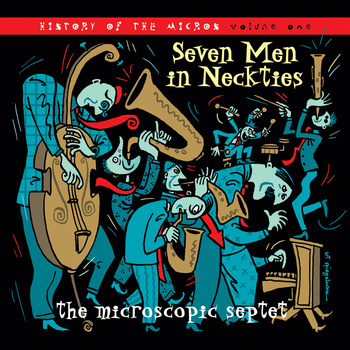 SEVEN MEN IN NECKTIES: HISTORY OF THE MICROS, VOL I RUNE 236/237 |
This beautifully packaged and annotated set includes new cover artwork by Pulitzer-prize winning illustrator Art Spiegelman, new notes by leader Phillip Johnston, lots of great photographs and newly remastered versions of the first two albums by the band: "Take The Z Train" and "Let's Flip!", as well as quite a lot of never-before released material, including the well-known theme to the NPR show Fresh Air. The majority of this set has never appeared on CD and all of it has been unavailable for a number of years. "Posterity is going to remember the Microscopic Septet as one of the best bands of the 1980s." – The Philadelphia Inquirer “...at once capriciously whimsical and deadly serious.” – New York Sun History of the Micros (Vol I & II) press release |
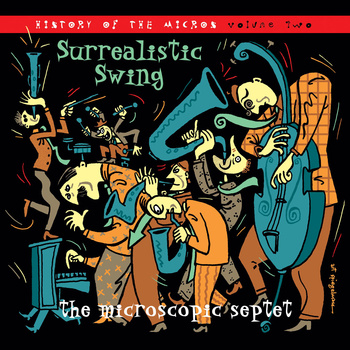 SURREALISTIC SWING: HISTORY OF THE MICROS, VOL II RUNE 238/239 |
Active for a dozen years, the Microscopic Septet were widely recognized as "New York's Most Famous Unknown Band." The group started with a basic reeds-and-rhythm texture (soprano, alto, tenor and baritone sax, piano, bass and drums) that was sonically similar to the sound of the Swing Era. However, they employed these textures to address a widely eclectic range of styles, from free-form music to R&B, rhumbas and ragtime. The result was a brilliant blend of fresh-sounding orchestration and inspired soloing. Beloved in New York, where they generally drew capacity crowds, "The Micros" were one of the most celebrated of the many cutting-edge units associated with experimental music's best-known venue, the Knitting Factory, during the peak years of the "Downtown" music movement in the mid 1980s onward. This beautifully packaged and annotated set includes new cover artwork by Pulitzer-prize winning illustrator Art Spiegelman, new notes by leader Phillip Johnston, lots of great photographs and newly remastered versions of the last two albums by the band: "Off Beat Glory" and "Beauty Based on Science (The Visit)", as well as quite a lot of never-before released material, including two tracks with very early member John Zorn. The majority of this set has never appeared on CD and all of it has been unavailable for a number of years. "The Microscopic Septet was one of the most distinctive jazz ensembles in New York during the '80s and early '90s. Combining a love for the big-band sound with a progressive approach to arrangement and composition, the Micros managed to be nostalgic and futuristic at the same time." - All Music Guide "...wildly inventive..." – Wall Street Journal “...the Micros were dedicated to jazz that swung and was endlessly fun and inventive...a goldmine of material that should delight and inspire...” – Downbeat
|

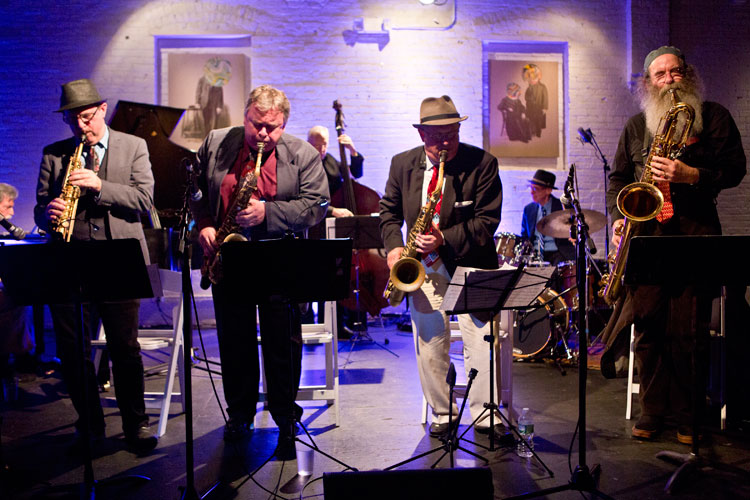
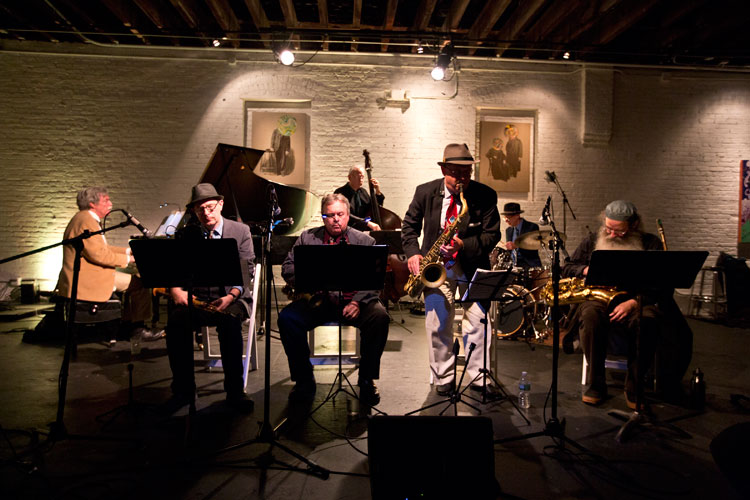
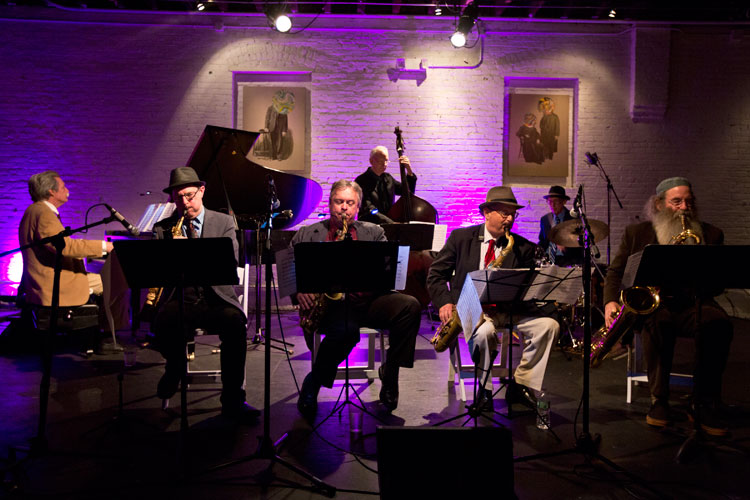
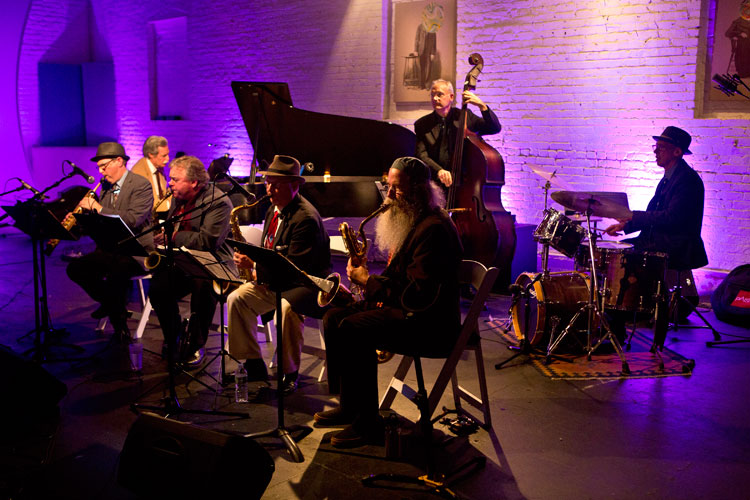
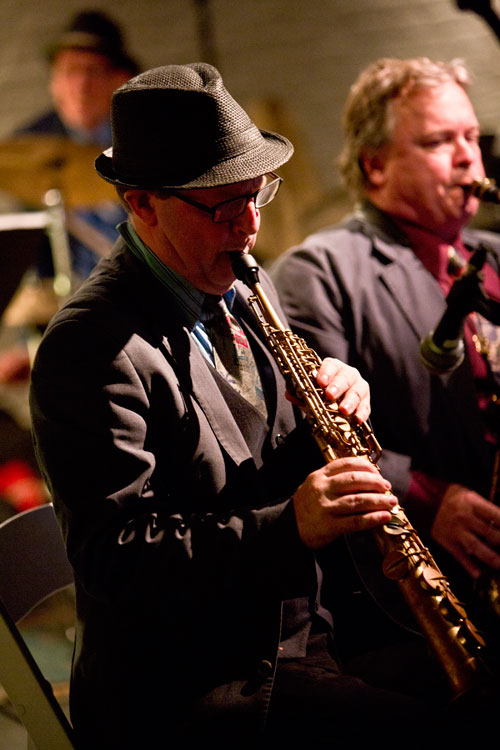
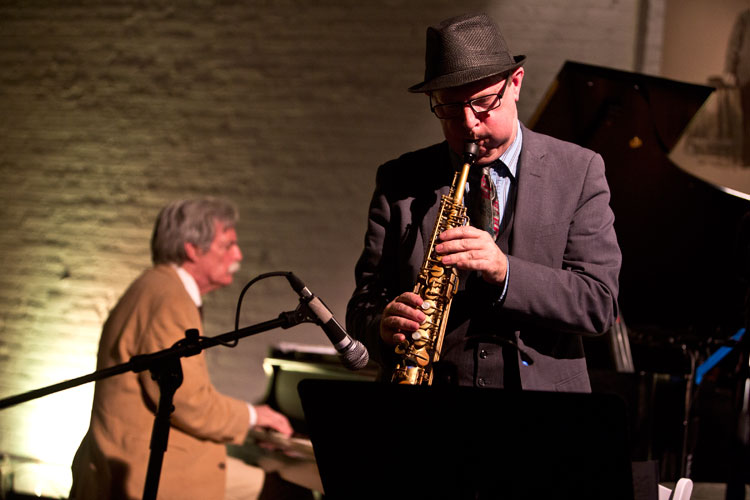
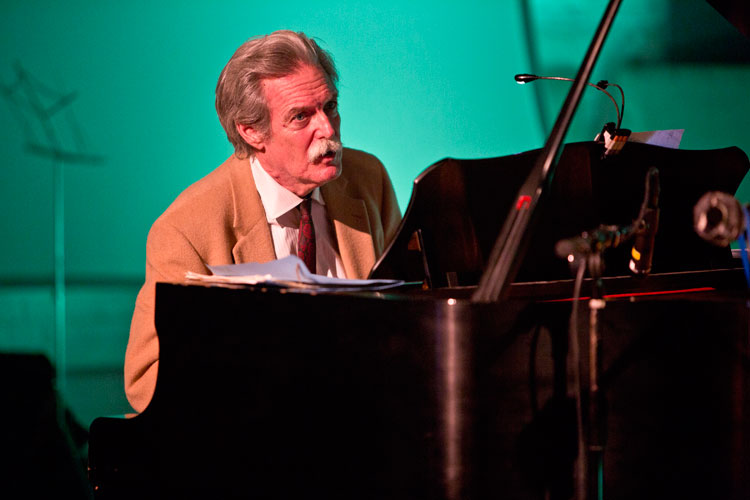

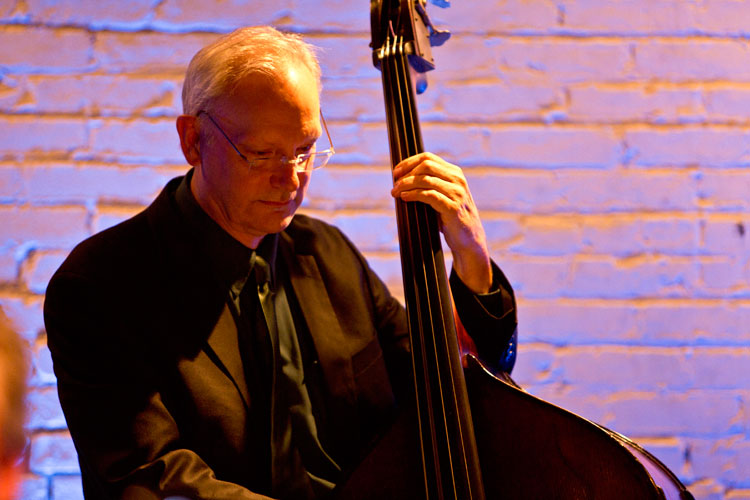

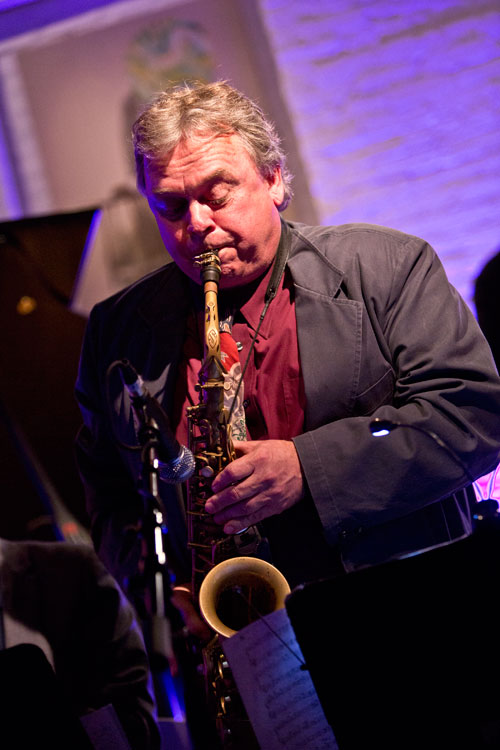
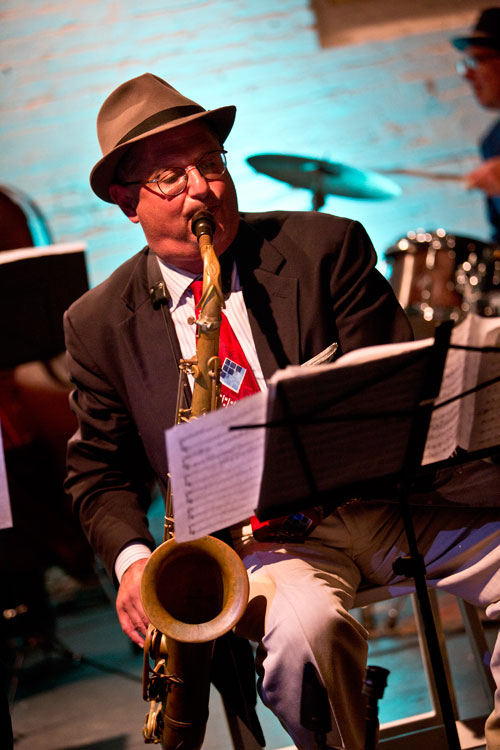
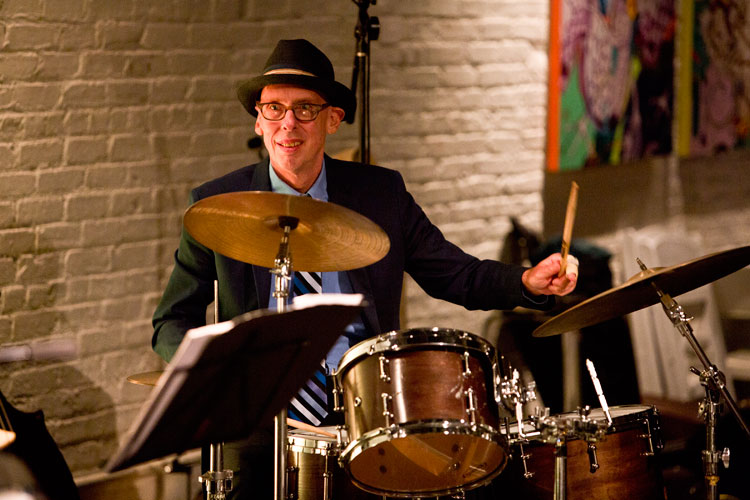 Manhattan Moonrise
Manhattan Moonrise
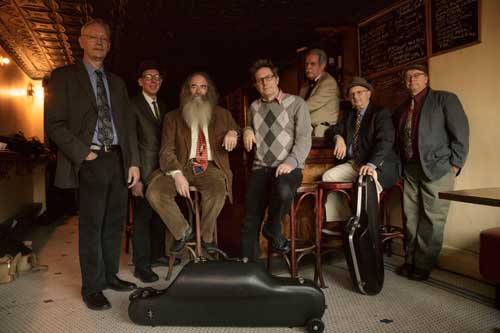
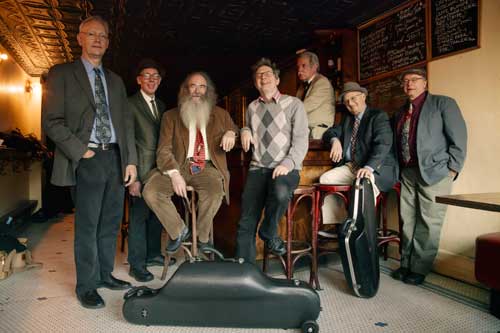
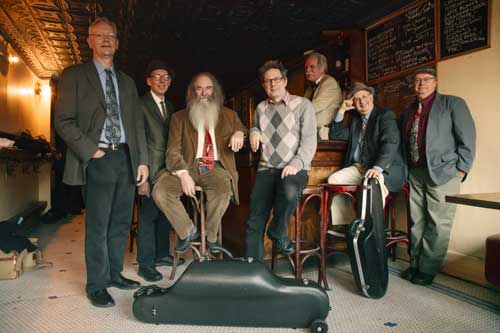
 Friday the 13th
Friday the 13th
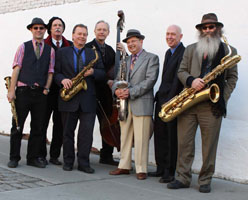
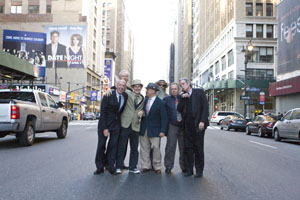
 Lobster Leaps In
Lobster Leaps In
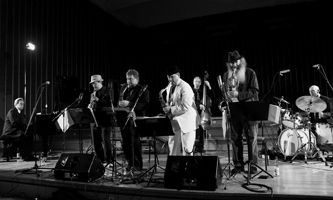 History of the Micros (Vol I & II)
History of the Micros (Vol I & II)

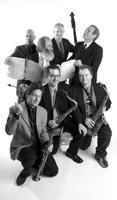
PRESS RELEASES
Been Up So Long It Looks Like Down to Me: The Micros Play the Blues press release
Manhattan Moonrise press release
Friday the 13th press release
Lobster Leaps In press release
Lobster Leaps In press quotes
History of the Micros (Vol I & II) press release
History of the Micros (Vol I & II) press quotes
Various features and concert reviews
Original Micros releases press quotes
Original Micros releases press quotes
